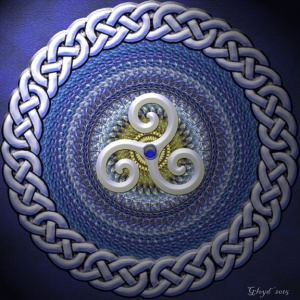 Yes, I have seen what I consider to be UFOs. I have not often shared this experience because, well, it is not something people should do if they want to be taken seriously by family, friends and employers. However, since it seems that mainstream news and government agencies are now taking a closer look at such phenomena – now called Unidentified Aerial Phenomenon (UAPs), I figured it was time I told my story.
Yes, I have seen what I consider to be UFOs. I have not often shared this experience because, well, it is not something people should do if they want to be taken seriously by family, friends and employers. However, since it seems that mainstream news and government agencies are now taking a closer look at such phenomena – now called Unidentified Aerial Phenomenon (UAPs), I figured it was time I told my story.
In October 1997, I visited with a friend at her family’s beach house on the outskirts of Ensenada, Baja California, Mexico. It was one of those rare autumn evenings on the Bahia de Todos Santos when there was no marine layer of clouds to obscure the stars.
It was a Friday evening and we had just returned from having dinner in town. We had not been drinking. This is an important fact that is necessary for the telling of this story. We chatted for a few minutes with some neighbors outside the house, and by the time we were ready to go in, it was completely dark and the stars were out. The moon had not yet risen.
As my friend opened the three security gates that protected the backdoor of the house (a bit of a process that took a few minutes), I stood in the courtyard and peered up at the stars. I immediately noticed a tiny, pale yellow point of light, moving somewhat slowly from west to east directly overhead. I said to my friend, “Hey, I think I see a satellite.”
My friend stepped away from the door to stand next to me and looked up. “Yes, that’s a satellite. It’s not blinking like a plane.” No sooner after she said that, the light stopped directly over head. Neither one of us said anything.
Then, it made a ninety degree turn and started to move north.
I said, “I don’t think satellites make sharp turns like that.”
“No, they don’t and neither does anything else.” My friend was and still is one of the most level-headed people I know, the kind of person you want around in case of an emergency, yet the pitch of her voice as she said this told me she was struggling with what she was seeing.
We stared at the light as it moved overhead. Suddenly it stopped and two more lights appeared out of nothing. One was blue and the other pale orange. We both gasped.
“What are those?” I whispered.
“I’m getting the field glasses.” My friend rushed back to the door and hurried to unlock the last gate. She flung it open and ran inside.
I continued to watch the orbs. They bobbed around each other like insects do when in a group. I felt my skin get goose fleshy and fear gripped me. I could not wrap my head around what I was seeing. When I could not stand it anymore, I turned and rushed to the door where my friend had gone. I collided with her as she was coming out. It would have been very comical if I had not been so scared.
She had the field glasses and started scanning the sky. In the few seconds that I had taken my eyes off the orbs, they had vanished.
We stood outside for quite a while longer watching the sky. I hoped they would come back because I wanted proof that what we saw were real. I also hoped that they would not because I was so mind-blown at what I had witnessed.
We finally went inside and talked long into the night. We re-assured each other that we were not delusional or drunk and that we both saw the same thing. We eliminated the possibility that they were some sort of aircraft. My friend worked in aerospace and was very sure on this point. We doubted that the Mexican authorities had any sort of technology that moved like this. This was in the days before anyone had drones that could move like this. Just in the last couple of years did I learn that this area of the southern California and Baja California coasts were a hotbed of UAP sightings.
We finally ended the evening nervously joking that maybe Men-in-Black would pay us a visit and then filed away this experience. Every once in a while when we see each other, we bring it up and mull it over again.
So what did we see? Optical illusion? Black op exercises? Extraterrestrial or interdimensional beings? Angels? Demons?
I don’t know. I will probably never know. But I do scan the sky from time-to-time and wonder.
Ljg 2023














